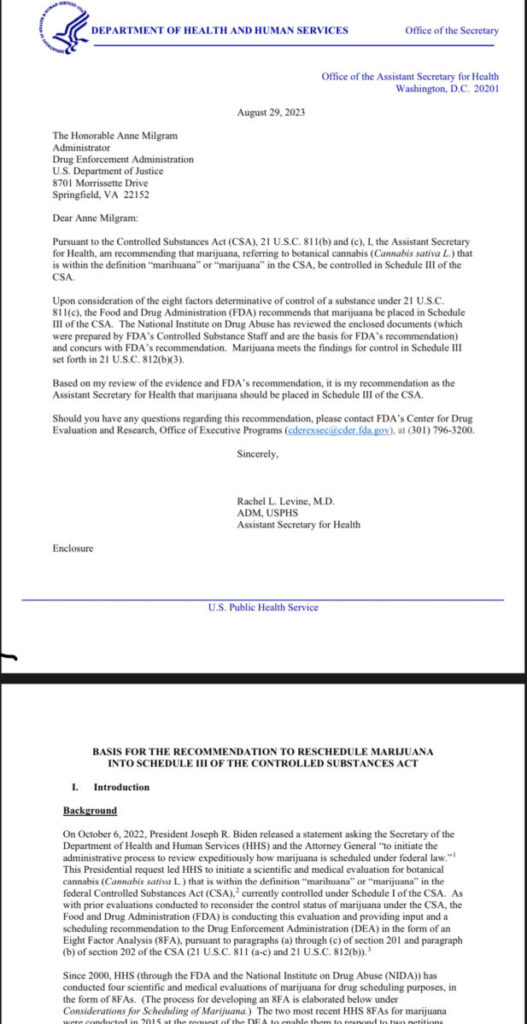Introduction:
In a groundbreaking development, the U.S. government has released critical documents, confirming recommendations for a major reclassification of cannabis under federal law. These documents, totaling 252 pages, come from the Department of Health and Human Services (HHS) and mark a pivotal shift in the perception of cannabis as a medically valuable substance.
Cannabis’s Journey to Schedule III:
The HHS documents underscore cannabis’s “accepted medical use in treatment” and its lower potential for abuse compared to Schedule I and II substances. This revelation comes after an extensive review involving over 30,000 healthcare professionals and six million registered patients in the U.S., highlighting the widespread medical application of marijuana in treating various conditions.
The Medical Perspective
Federal health authorities found substantial evidence supporting cannabis’s effectiveness in treating pain, particularly neuropathic pain. While findings were mixed across different medical conditions, the most significant results were seen in pain management. However, the efficacy of cannabis in treating conditions like epilepsy and anxiety remains unsupported by the FDA.
Weighing the Risks and Benefits
The HHS review also pointed out the lack of substantial evidence in using cannabis for PTSD, with the risks potentially outweighing the benefits. Some positive effects were noted in treating Crohn’s disease, but these were mostly subjective and limited. Overall, the data indicates credible scientific support for cannabis in treating pain, anorexia related to medical conditions, and nausea and vomiting, especially chemotherapy-induced.
A Comparative Safety Analysis
In terms of safety, the review concluded that cannabis poses lower health risks compared to other drugs of abuse like heroin, cocaine, and benzodiazepines. This is evident from various epidemiological databases showing lower incidents of emergency department visits, hospitalizations, and overdose deaths related to cannabis.
The Implications of Rescheduling:
The documents’ release is more than just a transparency move; it signifies a shift in federal attitude towards cannabis. If the DEA accepts the HHS recommendation to reclassify cannabis as Schedule III, this wouldn’t legalize it federally but would significantly impact research barriers and business tax deductions.
Conclusion:
The federal government’s acknowledgment of cannabis’s medical use and recommendation for reclassification marks a significant milestone. While the final decision rests with the DEA, this development reflects a growing consensus on cannabis’s potential and the need for policy reform. As we navigate these changes, the importance of comprehensive research and balanced policy-making remains paramount in ensuring public safety and health.













